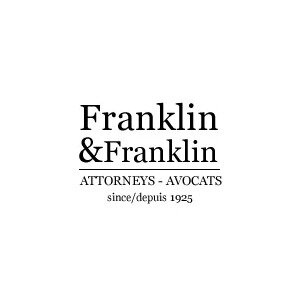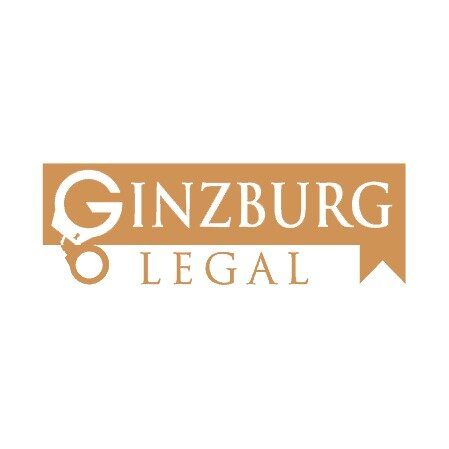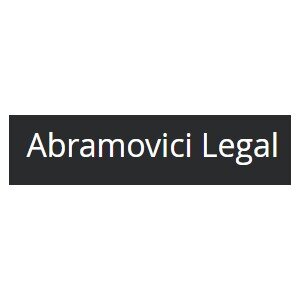Best Drunk Driving Lawyers in Montreal
Share your needs with us, get contacted by law firms.
Free. Takes 2 min.
List of the best lawyers in Montreal, Canada
About Drunk Driving Law in Montreal, Canada
Drunk driving is a serious offense in Montreal, Canada. The law prohibits operating a motor vehicle while impaired by alcohol or drugs, including prescription medications. Impaired driving poses a significant risk to public safety and can result in severe consequences, including fines, license suspension, and even imprisonment.
Why You May Need a Lawyer
There are several situations where seeking legal assistance for drunk driving can be crucial:
- If you have been charged with drinking and driving
- If you were involved in an accident while under the influence
- If you are unsure of your rights and the legal process
- If you need help navigating the legal system and understanding the potential consequences
- If you want to minimize the impact of a drunk driving charge and explore possible defenses
Local Laws Overview
In Montreal, Canada, there are specific laws and regulations relating to drunk driving. Here are some key aspects you should be aware of:
- The legal blood alcohol concentration (BAC) limit for fully licensed drivers is 0.08%.
- For novice drivers, drivers under the age of 22, and drivers with a learner's permit, the legal BAC limit is zero.
- Police officers have the authority to conduct random breathalyzer tests even without suspicion of impairment.
- Refusing to provide a breath sample or perform a sobriety test can result in immediate penalties, including license suspension.
- Penalties for drunk driving offenses can range from fines and license suspension to imprisonment, depending on the severity of the offense and any previous convictions.
Frequently Asked Questions
1. Can I refuse to take a breathalyzer test if I am pulled over?
No, it is an offense to refuse to comply with a police officer's demand for a breathalyzer or sobriety test in Montreal, Canada. Refusing can lead to immediate penalties similar to those for impaired driving.
2. Are there any defenses against drunk driving charges?
Yes, there are potential defenses in drunk driving cases. For example, if the breathalyzer test or sobriety test was conducted improperly or if the equipment used was faulty, it could impact the validity of the results. An experienced lawyer can assess your case and identify possible defenses.
3. Can a drunk driving conviction affect my insurance rates?
Yes, a drunk driving conviction can have a significant impact on your insurance rates. Insurance companies may consider you a high-risk driver, resulting in increased premiums or even denial of coverage. It is advisable to consult with your insurance provider for more information.
4. What happens if I cause an accident while driving under the influence?
If you cause an accident while driving under the influence, you can face additional charges such as impaired driving causing bodily harm or impaired driving causing death. These offenses carry even more severe penalties than a regular impaired driving charge.
5. Can I represent myself in court for a drunk driving charge?
While it is legally possible to represent yourself, it is generally not recommended. The legal process can be complex, and having an experienced lawyer by your side increases your chances of achieving a favorable outcome. A lawyer can provide guidance, challenge evidence, and help build a strong defense strategy.
Additional Resources
If you are in need of legal advice or further information regarding drunk driving in Montreal, Canada, you may find the following resources helpful:
- Régie de l'assurance automobile du Québec (SAAQ) - The provincial government body responsible for driver licensing and vehicle registration. They can provide information on penalties and consequences of impaired driving.
- Montreal Police Service (SPVM) - The local police department where you can find information on local enforcement and regulations related to drunk driving.
- Law Society of Quebec - The professional association for lawyers in Quebec. They can provide referrals to reputable lawyers specializing in drunk driving cases.
Next Steps
If you require legal assistance for drunk driving in Montreal, Canada, it is important to act promptly:
- Contact a reputable criminal defense lawyer who specializes in impaired driving cases.
- Discuss your situation in detail and provide any relevant information or documentation.
- Follow the advice provided by your lawyer and cooperate fully throughout the legal process.
- Appear in court on the scheduled date and time as directed by your lawyer.
- Work closely with your lawyer to build a strong defense strategy and, if necessary, negotiate with the prosecution for the best possible outcome.
Lawzana helps you find the best lawyers and law firms in Montreal through a curated and pre-screened list of qualified legal professionals. Our platform offers rankings and detailed profiles of attorneys and law firms, allowing you to compare based on practice areas, including Drunk Driving, experience, and client feedback.
Each profile includes a description of the firm's areas of practice, client reviews, team members and partners, year of establishment, spoken languages, office locations, contact information, social media presence, and any published articles or resources. Most firms on our platform speak English and are experienced in both local and international legal matters.
Get a quote from top-rated law firms in Montreal, Canada — quickly, securely, and without unnecessary hassle.
Disclaimer:
The information provided on this page is for general informational purposes only and does not constitute legal advice. While we strive to ensure the accuracy and relevance of the content, legal information may change over time, and interpretations of the law can vary. You should always consult with a qualified legal professional for advice specific to your situation.
We disclaim all liability for actions taken or not taken based on the content of this page. If you believe any information is incorrect or outdated, please contact us, and we will review and update it where appropriate.













